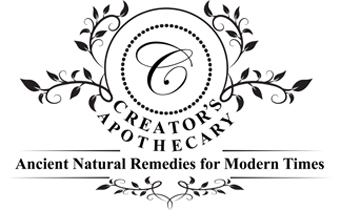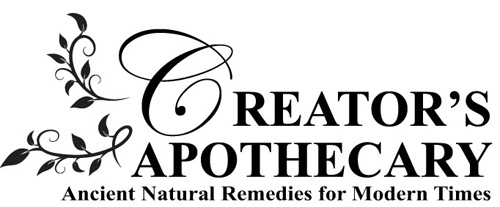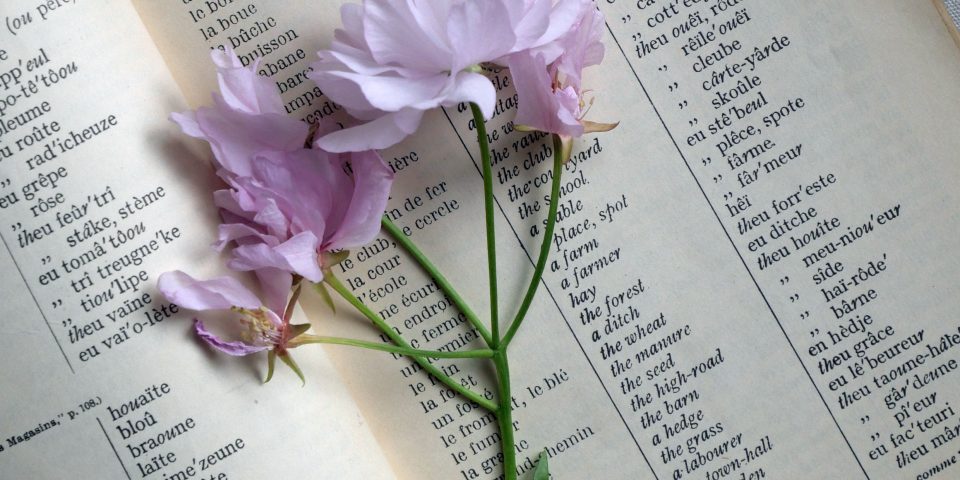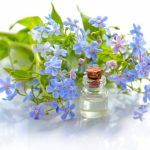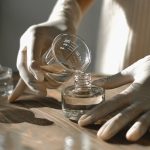Essential Oil Therapeutic Terms and Glossary
The following list is a description of therapeutic terms and their meaning, in some cases, followed by a list of essential oils with that capability generally attributed to it. Always check with your professional aromatherapist and doctor before using any essential oils. These statements have not been evaluated by the Food and Drug Administration. These oils are not intended to diagnose, treat, cure or prevent any disease.
Essential Oil General Safety Information: Essential Oils (EOs) are highly concentrated extractions of plants and can be harmful if not used carefully. Incorporating EOs into your lifestyle should not cause unnecessary work, but it is important to heed all safety precautions. Never take EOs internally, even if a label say it is safe for consumption by mouth. Never put undiluted EOs directly onto your skin (NEAT) to avoid sensitization of skin, and never apply NEAT to broken skin. Some EOs can cause irritation, sensitization or allergic reactions in some individuals. When using a new oil topically for the first time, perform a skin patch test on a small area of the skin. Some EOs are phototoxic and can cause irritation, inflammation, blistering, redness and/or burning when exposed to UVA rays of the sun. Discontinue using EOs immediately if you encounter any irritation, redness or reaction. Take care when adding EOs directly to bathwater. EOs do not stayed mixed in water, and can, therefore “pool” causing the EO to touch body areas in full strength with the potential for irritation. Some EOs should be avoided during pregnancy or by those with asthma, epilepsy, or other health conditions. Avoid using EOs near the genitals, mouth, nose, eyes and ears. Extreme caution should be used with children and elderly (due to medication mix). Care should be taken when using EOs near animals as not all EOs are safe to use on dogs, cats, birds, horses or other pets. EOs are flammable; keep them away from fire hazards.
Therapeutic Terms and Glossary
Abortifacient: Capable of inducing abortion
Absolute: The most concentrated form of fragrance obtained when distilling a concrete
Acetylcholine: Is a fluid used in the transmission of information from one nerve ending to another
Adulterate: This is when unscrupulous companies mix pure essential oils with a base oil – thereby watering down the essential oil – but then still sell the ‘watered down’ oil as 100% pure essential oil. This is a huge problem in the essential oil market, as people are tempted to adulterate their oils for higher profit margins.
Allergy: Hypersensitivity caused by a foreign substance
Alopecia: Baldness – can be temporary or permanent
Alterative: cleanses the blood and corrects impure blood conditions: Carrot seed, Cypress, Grapefruit, Everlasting, Juniper Berry, Lemon, Mandarin, Rosemary. Correcting disordered bodily functions
Amenorrhoea: The absence of menstruation
Anaerobic: Type of organism that does not require oxygen
Analgesic: reduces pain sensation, Relieving or deadening pain. View Analgesic Essentials Oils
Anaphrodisiac: Lessening sexual desire
Anemia: Deficiency of either quantity or quality of red corpuscles in the blood
Anesthetic: Pain relieving by loss of sensation
Annual: Plant that completes its life cycle in one year
Anodyne: Stills pain and quieten disturbed feelings
Anosmic: Loss of smell
Anthelmintic: A vermifuge, destroying or expelling intestinal worms
Antiacid: Combats acid in the body
Antiallergenic: Reduces symptoms of allergies
Antiarthritic: An agent which helps to combat arthritis
Antibacterial aka as antibiotic: Fights bacterial growth
Antibiotic aka antibacterial: An antibiotic is a type of antimicrobial substance active against bacteria. It is the most important type of antibacterial agent for fighting bacterial infections, and antibiotics are widely used in the treatment and prevention of such bacterial infections. Prevents bacterial growth; fights infection in the body by preventing the growth or destroying bacteria. View Antibiotic page here.
Anti-convulsant: Helps control convulsions
Antidepressant: Helps to counteract depression and lifts the mood, alleviates depression.
Antidontalgic: Relieves toothache: Clove bud oil
Antiemetic: Reduces the severity or incidence of vomiting
Antifungal or fungicidal: Prevents the growth of fungi
Antigalactagogue: Impedes or lessens the flow of milk
Antihemorrhagic: A substance preventing or combating bleeding
Antihistamine: Counteracts allergic reaction
Anti-infectious: Prevents against uptake of infection. Used against or tending to counteract or prevent infection anti-infective agents: an anti-infective agent.
Anti-inflammatory: helps to reduce and prevent inflammation: Basil, German Chamomile, Helichrysum, Fennel, Geranium, Lavender, Litsea Cubeba, Niaouli, Patchouli, Peppermint, Ravensara, Rosemary, Rose, Spearmint, Spruce, Tea Tree
Antimicrobial: A substance reducing or resisting microbes
Antioxidant: A substance to prevent or delay oxidation
Antiparasitic: acts against insect parasites
Antiphlogistic: Counteracts inflammation
Antipruritic: Relieves or prevents sensation of itching
Antiputrescent: acts against putrefaction
Antipyretic: Reduces fever
Antirheumatic: An agent which helps to combat rheumatism: can relieve rheumatic problems: Black Pepper, German Chamomile, Eucalyptus, Ginger, Juniper Berry, Lemon, Marjoram, Pine, Rosemary
Antisclerotic: Helps to prevent hardening of arteries, cells and tissues
Antiseborrheic: Helps control the oily secretion from sweat glands
Antiseptic: A substance helping to control infection: destroys microbes and prevents their development.
Antispasmodic: A substance to help prevent and ease spasms and relieve cramps, or relieves spasms, convulsions, or contractions. We tend to think of spasms only in muscles of the legs or other physical body parts, however, your colon muscles can spasm, muscles in your GI Tract, and so can your heart muscle, and other smooth muscles in the body.
Antisudorific: A substance to help lessen or prevent sweating
Antitoxic: Antidote or treatment to counteract the effects of poison
Antitussive: Relieves coughing
Antiviral: Antivirals help the body fight off harmful viruses and can usually ease symptoms and shorten the length of a viral infection. Antivirals also typically lower the risk of getting or spreading viruses.
Aperient: Mild laxative
Aphonia: Loss of voice
Aphrodisiac: Aphrodisiacs are substances, including essential oils, that increase sexual desire, sexual attraction, sexual pleasure, or sexual behavior/functioning.
Apoplexy: Sudden loss of consciousness, a stroke or sudden hemorrhage
Aquatic: refreshing, light, and clean scent like rain, sea glass. This scent category conjures up images of breezy summer sailing days drinking limoncello in Positano by a sparkling ocean or reading a paperback book on the beach. (examples: marine notes like algae, salt, seaweed, and fresh sea air)
Aromatherapy: The therapeutic use of essential oils
Arrhythmia: Irregular or loss of heartbeat rhythm
Arteriosclerosis: Hardening of the arteries
Astringent: contracts blood vessels and body tissue: Cedarwood, Cypress, Eucalyptus radiata, Frankincense, Geranium, Juniper Berry, Lavender, Lemon, Lemongrass, Litsea Cubeba, Patchouli, Peppermint, Rosemary,
Astringent: Causing contraction of organic tissue
Atherosclerosis: Accumulation of fatty deposits on the inside walls of arteries
Atony: Lack of muscle tone
Bactericidal: An agent destroying bacteria
Balsam: Water soluble, semi-solid or viscous resinous exudate similar to that of gum
Balsamic: soothes sore throats, coughs, etc. Soothing medicine or application having the qualities of balsam, Basil, Bay Laurel, Bergamot, Black Pepper, Eucalyptus radiata, Ginger, Lemon, Lemongrass, Niaouli, Patchouli, Peppermint, Spruce
Bechic: Anything referring to coughing, or an agent relieving cough
Biennial: A plant completing its life cycle in two years, without flowering the first year
Bilious: A condition caused by an excessive secretion of bile; bladder and ducts, Increases the secretion and flow of bile production into the duodenum: Peppermint, Fennel, German Chamomile, Lavender.
Blepharitis: Inflammation of the eyelids
Calmative: sedative, calming agent; produces a sedative or tranquilizing effect
Camphoreous: Camphor is a waxy, colorless solid with a strong aroma found in the wood of the camphor laurel (Cinnamomum camphora), a large evergreen tree found in East Asia; and in the kapur tree (Dryobalanops sp.), a tall timber tree from South East Asia, that is steam distilled to create essential oil. Camphor’s scent that is hard to confuse with anything else, it smells partly woody, herbal and spicy, cooling, and earthy all at the same time, maybe even a little like moth balls. Camphor is found everywhere in nature including rosemary, basil, dogwood, sagebrush, sage, yarrow and lavender. Typically used it is used topically to relieve pain, irritation, and itching. Camphor is also used to relieve chest congestion and inflammatory.
Carcinogenic: A substance that promotes cancer or cancerous growths
Cardiac: Pertaining to the heart
Carminative: Settles the digestive system and relieves flatulence, relieves flatulence, easing abdominal pain and bloating: Basil, Bay Laurel, Bergamot, Black Pepper, Cardamom, German Chamomile, Cinnamon, Fennel, Frankincense, Geranium, Ginger, Juniper Berry, Lavender, Lemon, Lemongrass, Litsea Cubeba, Marjoram, Orange, Peppermint, Rosemary, Thyme
Carrier oil: An oil which is used to dilute essential oils for the purpose of massage – see fixed oils
Cellulite: An “orange peel” effect caused by local accumulation of fat and waste products
Cephalic: A substance stimulating and clearing the mind, stimulates and clears the mind: Basil, Cardamom, Peppermint, Rosemary, Spearmint
Chemotypes: The same botanical species occurring in other forms due to different growth conditions
Chi / Qi: Chinese term referring to the essential life force
Cholagogue: promotes the evacuation of bile from gall
Cholecystokenetic: Agent that stimulates the contraction of the gall bladder
Choleretic: Helps the liver to excrete bile, leading to greater bile flow
Cholesterol: Is a steroid alcohol found in red blood cells, bile, nervous tissue and animal fat
Cicatrisation: Formation of scar tissue
Cicatrisive: promotes the formation of scar tissue, thus healing
Cicatrizant/ Cicatrisant: promotes healing of scar tissue: Bergamot, German Chamomile, Eucalyptus radiata, Helichrysum, Frankincense, Lemon, Niaouli, Patchouli, Rosemary, Rose, Spearmint, Tea Tree, Thyme
Cirrhosis: Chronic inflammation and degeneration of any organ (normally in the liver)
Citrusy: Citrus is a genus of flowering trees and shrubs in the rue family, Rutaceae; native to South Asia, East Asia, Southeast Asia, Melanesia, and Australia. Citrus fruits include oranges, lemons, mandarins, tangerines, grapefruits, pomelos, and limes. Citrusy essential oils have the flavor or smell of these citrus fruits; tangy, tart, sweet and sour smelling, energizing, comforting, uplifting and invigorating. Citrus scents are crisp and clean with herbal notes to give that refreshing scent and revive the senses. Aromas are characteristic of the rinds from which they are extracted. They can be described as tangy or tart, fresh, clean, vibrant, invigorating, exciting, energizing, and uplifting.
Clinical trial: A controlled study to look at the effectiveness of a specific ingredient or application
Cohobation: Is a process in the extraction method of especially rose essential oil, to ensure a “complete” oil
Cold pressed: Refers to a method of extraction where no external heat is applied during the process
Colic: Pain due to contraction of the muscle of the abdominal organs
Colitis: Inflammation of the colon
Concrete: A waxy concentrate semi-solid essential oil extract, made from plant material, and is used to make an absolute
Constipation: A state where normal bowel functions are not present
Cutaneous: Pertaining to the skin
Cystitis: Bladder inflammation
Cytophylactic: Action of increasing the leukocyte activity to defend the body against infection; promotes cell turnover, thus healing, encourages cell regeneration and growth of skin cells: German Chamomile, Helichrysum, Frankincense, Geranium, Lavender, Rose.
Cytotoxic: Toxic to all cells
Decoction: A herbal preparation made by boiling the material and reducing it to a concentration
Decongestant: A substance which helps to relieve congestion
Decongestant: reduces or relieves congestion: German Chamomile, Clary Sage, Eucalyptus radiata, Fennel, Geranium, Grapefruit, Juniper Berry, Lavender, Lemon, Mandarin, Marjoram, Niaouli, Orange, Patchouli, Peppermint, Ravensara, Rosemary, Rose
Demulcent: An agent protecting mucus membranes and helps stop irritation
Deodorant: masks or removes unpleasant smells: Bergamot, Clary Sage, Cypress, Eucalyptus radiata, Fir, Geranium, Lavender, Lemongrass, Patchouli, Pine
Depurative: cleanser, detoxifier; purifies blood and internal organs; Helps to detoxify and to combat impurities in the blood and body
Dermatitis: Inflammation of the skin
Detoxifier: Helps to detoxify and to combat impurities in the blood and body
Diaphoretic: A substance which helps to promote perspiration, promotes perspiration and by this action restores circulation and dispels fever and chills while eliminating toxins from the body via the skin: Basil, Cardamom, Cinnamon, Eucalyptus, Ginger, Rosemary, Thyme
Diffuser: A device which helps to release the fragrance molecules into the air
Digestive: aids the digestion of food: Basil, Bay Laurel, Cardamom, German Chamomile, Helichrysum, Fennel, Lavender, Mandarin, Marjoram, Niaouli, Orange, Peppermint, Rosemary, Rose
Distillation: A method of extraction used in the manufacture of essential oils
Diuretic: Helps to produce urine and promotes the removal of excess water from the body by urine: Cardamom, Cedarwood, Cypress, Eucalyptus radiata, Helichrysum, Fennel, Frankincense, Geranium, Grapefruit, Mandarin, Patchouli, Pine, Rosemary, Thyme
Dysmenorrhoea: Painful menstruation
Dysuria: Pain or difficulty in urinating
Earthy, Musky, Pungent: These essential oils exude deep, rich scents that are smoky, woody, earthy, sweet, leather-like, and warm. Their mellow, alluring, and long-lasting fragrances lend a reassuring quality that makes them ideal for use in spiritual use.
Edema: Water retention
Emetic: Inducing vomiting
Emmenagogue: induces/assists or regularizes menstruation, promotes and regulates menstruation: Basil, Clary Sage, German Chamomile, Cinnamon, Ginger, Jasmine, Juniper Berry, Lavender, Peppermint, Rose, Rosemary, Fennel, Marjoram.
Emollient: Softening and soothing to the skin; soothes and softens skin
Emphysema: Degenerative disease of the lungs where the air sacs become enlarged
Endocrine: Pertaining to the ductless glands
Engorgement: Congestion or fullness of the tissue
Enteritis: Inflammation of the mucus membranes of the intestine
Enuresis: Involuntary urinating
Enzyme: Protein produced by living cells which catalyze biochemical reactions
Erethism: Abnormal state of irritation or excitement
Essential oil: Volatile aromatic liquid constituting the odorous principles of botanical matter
Exocrine: Pertaining to a gland with a duct, secreting directly onto outside surface of organism
Expectorant: A substance that helps to expel mucus from the lungs
Expectorant: promotes removal of mucus from the body; expels mucus in the respiratory system: Basil, Bay Laurel, Cardamom, Cedarwood, Eucalyptus radiata, Helichrysum, Fir, Frankincense, Ginger, Marjoram, Niaouli, Peppermint, Pine, Ravensara, Tea Tree, Thyme
Expression: Is an extraction method where essential oils are pressed to obtain the oil
Exudates: Natural material secreted by plants – can be spontaneous or after damage to plant
Febrifuge: an anti-febrile (anti-fever) agent, helps reduce fever: Helps to combat fever
Fibrillation: Rapid twitching of muscle fiber
Fixative: Material that slows evaporation of volatile components in perfume
Fixed oils: Vegetable oils obtained from plants that are fatty and non-volatile
Floral: pertaining to or consisting of flowers (floras). Sweet scent emitted by the flower petals and sometimes other parts of the flower. Sweet & Floral- Unapologetically romantic, often reminiscent of the flowers from which they are extracted and can be described as being feminine, flirty, powdery, subtle, modest, playful, romantic, and even poetic. They are often sweet-smelling and create a feeling of cheerfulness. Floral scents are considered to be classic and timeless. (examples: jasmine, rose, lavender, gardenia, cherry blossom, orange blossom, violet, lily, frangipani, orchid, honeysuckle, freesia)
Flower water: (often called hydrosol) The water resulting from the distillation of essential oils, which still contains some of the properties of the plant material used in the extraction
Fold: Refers to the percentage of terpenes removed by re-distillation – single fold to fivefold
Fractionated oils: Refers to oils that have been re-distilled, either to have terpenes removed or to remove other substances
Fruity: relating to, made with, or resembling fruit and having the flavor/aroma of ripe fruit; sweet, pungent, syrupy, inviting.
Fungicide: A substance which destroys fungal infections
Galactagogue: Helps to increase milk secretion: increases the secretion of milk: Fennel, Jasmine, Lemongrass
Gemicidal: An agent that destroys micro-organisms
Gingivitis: Inflammation of the gums
Glossitis: Inflammation of the tongue
Gourmand (Sweet) – evokes a sense of something yummy, sweet, indulgent, delicious ‘dessert-like’ scents like the top of a crème brûlée. Almost-but-not-quite cloying—and powdery. (examples: vanilla, chocolate, burnt sugar, and caramel)
Green Aroma: crisp, lively, sporty scents like cucumber, green tea leaves, rosemary, lavender
Haemostatic: stops bleeding
Halitosis: Bad breath
Hematuria / Haematuria: Presence of blood in the urine
Hemorrhoids: Piles which are dilated rectal veins
Hemostatic: Helps to stop bleeding
Hepatic: Pertaining to the liver; acts on the liver. Chamomile, Lavender, Geranium, Immortelle, Rosemary, Carrot seed, Peppermint, Cardamom, Ginger, Grapefruit
Hepatoxic: An agent having a toxic or harmful effect on the liver
Herbaceous: Smelling green or grassy. These fragrances often have mild floral yet invigorating spring-like scents that are associated with lush, wet foliage. (examples: fresh leaves, moss, mown grass, herbs, and trees)
Herpes: Inflammation of the skin or mucus membranes
Hormone: A product from living cells that produces a specific activity of cells remote from its point of origin
HOT Oils: (some of the spice essential oils) are a group of oils that are very high in antioxidants and feel “hot” when applied to skin. Generally, they are related to our digestion and overall well-being, but have many other uses. Hot oils can heat and stimulate the digestive track, enhancing digestive processes, help relieve constipation, and also stimulate the body’s circulatory and glandular systems, boosting metabolism. Hot oils can be soothing and relaxing to the area applied or can have a warming sensation and be stimulating. Hot oils have commonly been used for acute or seasonal pain, help to restore comfort to tired joints. Their antispasmodic property helps them to relieve tense muscles, menstrual cramps, stomach cramps, muscle pain, even headaches and migraines. The hot oils are very antiseptic and effective against parasites, bacteria and viruses.
Hybrid: A plant created by fertilization of one species by another
Hydrodiffusion: Is a distillation method of essential oil extraction where the steam is produced above the botanical material and then percolates down
Hydrosol: Floral water
Hyperglycemia / Hyperglycaemia: Excess of sugar in the blood
Hypertension: High blood pressure
Hypocholesterolemia: Lowering of the cholesterol content of the blood
Hypoglycemia: Lowered blood sugar levels
Hypotension: Abnormally low blood pressure
Hypotensive: reduces blood pressure: Marjoram, Lavender, Litsea Cubeba, Ylang Ylang.
Hypoxia: A shortage of oxygen
Immunostimulant: stimulates the action of the immune system; stimulates the correct function of the immune system: Cypress, Frankincense, Niaouli, Patchouli, Tea Tree
In vitro: In a test tube
In vivo: In a living body
Infused oil: An oil produced by steeping the macerated botanical material in oil until the oil has taken on some of the material’s properties
Infusion: Herbal remedy made by steeping the plant material in water inhibits mold and fungi growth. Basil, German Chamomile, Clary Sage, Helichrysum, Fennel, Geranium, Litsea Cubeba, Marjoram, Patchouli, Peppermint, Ravensara, Rosemary, Spearmint, Spruce, Tea Tree
Laxative: A substance that helps with bowel movements
Leucocytosis: Raises number of white blood cells in the blood
Leucorrhoea: Whitish vaginal discharge
Leukocyte: White blood cells responsible for fighting disease
Lipolytic: Causing lipolysis which is the chemical disintegration of fats
Macerate: To soak until soft
Massage therapist: A person qualified to perform therapeutic massage on people
Massage therapy: The manipulation of soft tissue to enhance health and general well-being
Menopause: The normal cessation of menstruation
Menorrhagia: Excessive blood loss during menstruation
Metrorrhagia: Uterine bleeding outside the normal menstrual cycle
Microbe: Minute living organism such as pathogenic bacteria and viruses
Minty: Essential oils with a minty scent are strong-scented and are distinctly known for their bracing, fresh fragrances. They are reputed to be clearing and cooling when used in aromatherapy and topical applications.
Mucilage: Substance containing demulcent gelatinous constituents
Mucolytic: Breaking down mucus
Musky, Pungent, Earthy: These essential oils exude deep, rich scents that are smoky, woody, earthy, sweet, leather-like, and warm. Their mellow, alluring, and long-lasting fragrances lend a reassuring quality that makes them ideal for use in spiritual use.
Musky/Resinous: – Deep, rich scents that are smoky, woody, earthy, sweet, leather-like, and warm. Their mellow, alluring, and long-lasting fragrances lend a reassuring quality that makes them ideal for use in spiritual practices. Largely considered masculine, the woody perfumes often have light top notes with a muskier heart. Made from sandalwood, patchouli and oakmoss, these warm, dry and musky notes provide an air of sophistication and mystery to all who wear them. Women frequently prefer the sultry, woody notes for evenings. (examples: amber, patchouli, cinnamon, musk, clove)
Myelin: Fatty material enveloping the majority of nerve cells
Narcotic: Substance inducing sleep
Nephritis: Inflammation of the kidneys
Nervine: acts on nerves; nervines, both herbal and in essential oils, help to tone, strengthen, modulate, or balance the nervous system. Plants and flowers that have a proven track record of balancing the nervous system are called nervines. Nervines may help manage mild to moderate stress, reduce or relieve nervous disorders, anxiety, depression, sleep disruptions, pain, and gastrointestinal discomfort. The sympathetic nervous system is what handles your “fight or flight” response, and while great for an emergency, can be problematic if the stress to the sympathetic nervous system becomes chronic. The parasympathetic nervous system, different from sympathetic, puts the body into a relaxation state of “healing and repair” through chemical interactions, which let your body know there is no physical danger present. Because no danger is present, the energy can be focused on other physical functions including digestion, elimination, detoxification, immune system production.
Neuralgia: Stabbing pain along a nerve pathway
Neurasthenia: Nervous exhaustion
Neurotoxin: A substance having a toxic or harmful effect on the nervous system
Oleo gum resin: Odoriferous exudation from botanical material consisting of essential oil, gum and resin
Oleoresin: Natural resinous exudation from plants or aromatic liquid preparation extracted from botanical material
Olfaction: Sense of smell
Olfactory bulb: The center where the processing of smell is started and is then passed onto other areas of the brain
Oliguria: Low volume of urine
Ophthalmia: Inflammation of the eye
Oriental & Basenotes – as their name suggests the oriental perfumes originate from the more exotic parts of the world. Warm and sensual, there is also a certain depth to this scent that is quite popular with the more adventurous. (examples: Made from spices such as pepper, cloves, cinnamon and vanilla)
Ostitis: Inflammation of the ear
Oxidation: Related to the addition of oxygen to an organic molecule, or the removal of electrons or hydrogen from the molecule
Palpitations: Undue awareness of heartbeat, or rapid heartbeat or abnormal rhythm of the heart
Parturient: Assisting and helping childbirth
Pathogenic: An agent causing or producing disease
Pectoral: beneficial for diseases or conditions of the chest and respiratory system
Peptic: Pertaining to gastric secretions as well as areas affected by them
Perennial: A plant living for more than two years
Pharmacology: Medical science pertaining to drugs
Pharmacopoeia: Official book of drugs
Pheromone: Chemical messenger used between people
Photosensitive: Photosensitivity is the term used to describe sensitivity to the ultraviolet (UV) rays from sunlight and other light sources, such as indoor fluorescent light. Photosensitivity can cause rashes, fever, fatigue, joint pain, and other symptoms. Photosensitivity, or sensitivity to sunlight, is a skin reaction to sunlight. It may be caused by sunlight alone or by sunlight and chemicals. These chemicals are found in perfume, makeup, creams, lotions, food, or medicines. Photosensitive essential oils are often in the citrus family.
Phytohormones: Plant substances mimicking the actions of human hormones
Phytotherapy: Treatment of disease with plant material, including herbal medicine
Polypus: Non-malignant type of growth
Pomade: Perfumed fat obtained during the enfleurage extraction method
Prophylactic: Preventative of disease or infection
Prostatitis: Inflammation of the prostate gland
Pruritis: Itching
Psoriasis: A chronic skin disease characterized by red patches and silver scaling
Psychosomatic: Pertaining to the mind and body
Pulmonary: Pertaining to the lungs
Pungent, Earthy, Musky: These essential oils exude deep, rich scents that are smoky, woody, earthy, sweet, leather-like, and warm. Their mellow, alluring, and long-lasting fragrances lend a reassuring quality that makes them ideal for use in spiritual use.
Pyelitis: Inflammation of the kidneys
Pyorrhea / Pyorrhoea: Discharge of puss from the gums
Pyrosis: Heartburn
Rectification: Process of re-distilling essential oils to rid them of certain constituents
Renal: Pertaining to the kidneys
Resin: Natural or prepared product – natural resins are exudations from trees, prepared resins are oleoresins from which the essential oil has been removed
Resinous/Musky: – Deep, rich scents that are smoky, woody, earthy, sweet, leather-like, and warm. Their mellow, alluring, and long-lasting fragrances lend a reassuring quality that makes them ideal for use in spiritual practices. Largely considered masculine, the woody perfumes often have light top notes with a muskier heart. Made from sandalwood, patchouli and oakmoss, these warm, dry and musky notes provide an air of sophistication and mystery to all who wear them. Women frequently prefer the sultry, woody notes for evenings. (examples: amber, patchouli, cinnamon, musk, clove)
Resinoids: Perfumed material extracted from natural resinous material by solvent extraction
Resolvent: An agent that helps disperse swelling, or that helps absorption of new growth
Rhizome: Underground stem that lasts for more than one season
Rubefacient: Substance causing redness and possible irritation to the skin; a counter-irritant producing redness of the skin: Black Pepper, Eucalyptus radiata, Fir, Ginger, Lemon, Niaouli, Pine, Rosemary, Vetiver
Sciatica: Pain down the back of the legs in the area serviced by the sciatic nerve
Sclerosis: Hardening of tissue due to inflammation
Scrofula: Tuberculosis of the lymphatic glands
Seborrhea: Increased secretion of sebum
Sedative: reduces mental excitement or physical activity, slows down functional activity and lessens excitement, calming
Sialogogue: An agent stimulating the secretion of saliva: induces, or tends to induce, sleep
Spasmolytic: tending or having the power to relieve spasms or convulsions
Spermatorrhoea: Involuntary emission of sperm without orgasm
Spicy: These essential oils have exotic, warm, intense aromas that are often reminiscent of baking and other warm memories. With strong scents, they are commonly used to stimulate energy and focus. Exotic, warm, intense aromas that are often reminiscent of baking and other warm memories. Aromatic spices provide a broad range of smells, with strong heavier base notes, they are commonly used to stimulate energy and focus. Spicy fragrances are, mysterious, frankly, sensual, sultry. Cardamon is a cool spice, which has a minty freshness. Clove and cinnamon are considered warm spices and are often paired with warm ambery resins and woody notes. (examples: cardamom, pink and black pepper, coriander, anise, basil, cassia, cinnamon, clove, ginger, nutmeg)
Splenic: Pertaining to the spleen
Stimulant: increases overall function of the body: Basil, Cardamom, Cinnamon, Fir, Ginger, Grapefruit, Juniper Berry, Litsea Cubeba, Niaouli, Peppermint, Rosemary, Spearmint, Tea Tree, Thyme
Stomachic: A substance which helps with the digestion and helps to improve appetite: good for the stomach; gastric tonic, digestive aid
Stomatitis: Inflammation of the mucus membranes of the mouth
Styptic: An agent that stops external bleeding
Sudorific: An agent causing sweating
Synergy: Agents working together and in harmony to produce an effect greater than the sum of the two separate agents
Synthetic: Refers to anything not of organic source
Tachycardia: Abnormally increased heartbeat
Tannin: An astringent substance that helps seal tissues
Terpeneless: Essential oil from which monoterpene hydrocarbons have been removed
Thrombosis: The formation of a blood clot
Thrush: A fungal infection in the mouth or vaginal area
Tic: Repetitive twitching
Tincture: Referring to either an herbal or perfume material prepared in an alcohol base
Tonic: invigorates, refreshes, and restores bodily functions; strengthens and enlivens the body or parts of the body: Basil, Bay Laurel, Bergamot, Cardamom, Clary sage, Cypress, Helichrysum, Fennel, Ginger, Juniper Berry, Lemon, Litsea Cubeba, Marjoram, Niaouli, Pine, Ravensara, Rosemary, Rose, Spearmint, Spruce, Thyme, Vetiver
Tracheitis: Inflammation of the windpipe
Tuber: Swollen part of underground stem of one year’s duration and capable of new growth
Unguent: A soothing or healing salve or balm
Uplifting: inspiring happiness, optimism, or hope
Urticaria: Weal on the skin
Uterine: Tonic to the uterus: Clary Sage, Jasmine, Frankincense, Rose.
Vasoconstrictor: An agent causing the contraction of blood vessel walls
Vasodilator: An agent causing the dilation of blood vessel walls
Vermifuge: An agent expelling intestinal worms
Volatile: Substance that is unstable and evaporates easily, like an essential oil
Vulnerary: An agent applied externally which helps to heal wounds and sores and helps to prevent tissue degeneration: heals wounds and sores by external application, events tissue degeneration and promotes healing of wounds: Bergamot, German Chamomile, Eucalyptus radiata, Frankincense, Geranium, Juniper Berry, Lavender, Marjoram, Niaouli
Woody/Earthy: These essential oils have deep, warm, lingering scents. Often described as smelling “brown,” these oils are reminiscent of the scents of a forest floor or damp soil. Their fragrances are soft, masculine, musky, and sensual. Their alluring, seductive, and hypnotic qualities create an atmosphere of mystery.
Grace to you and peace from God our Father and the Lord Jesus Christ. Philippians 1:2
Til next time,

